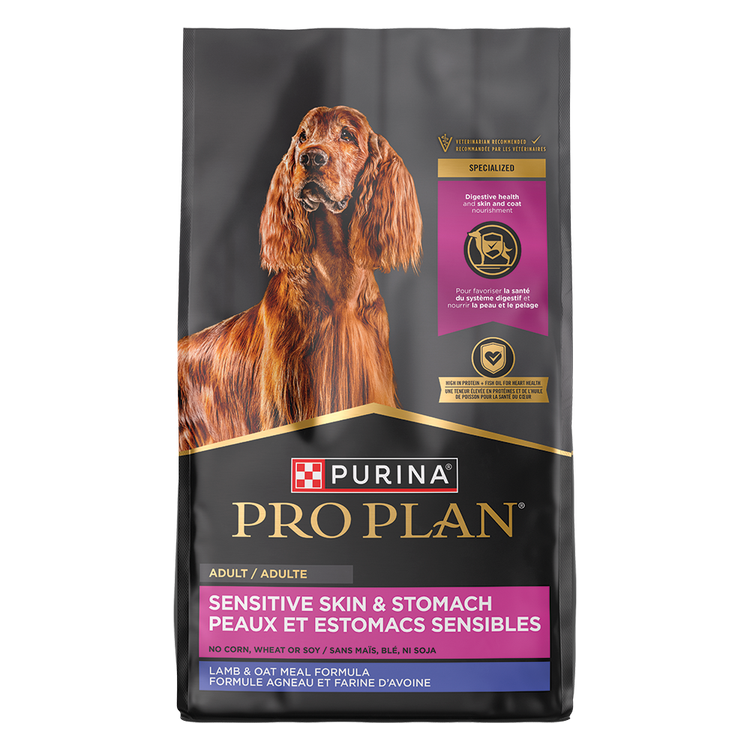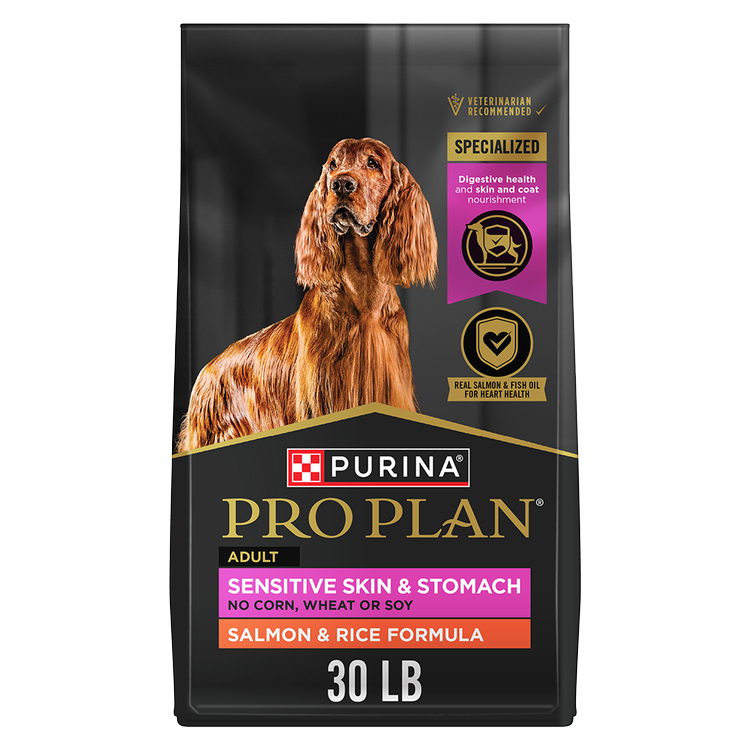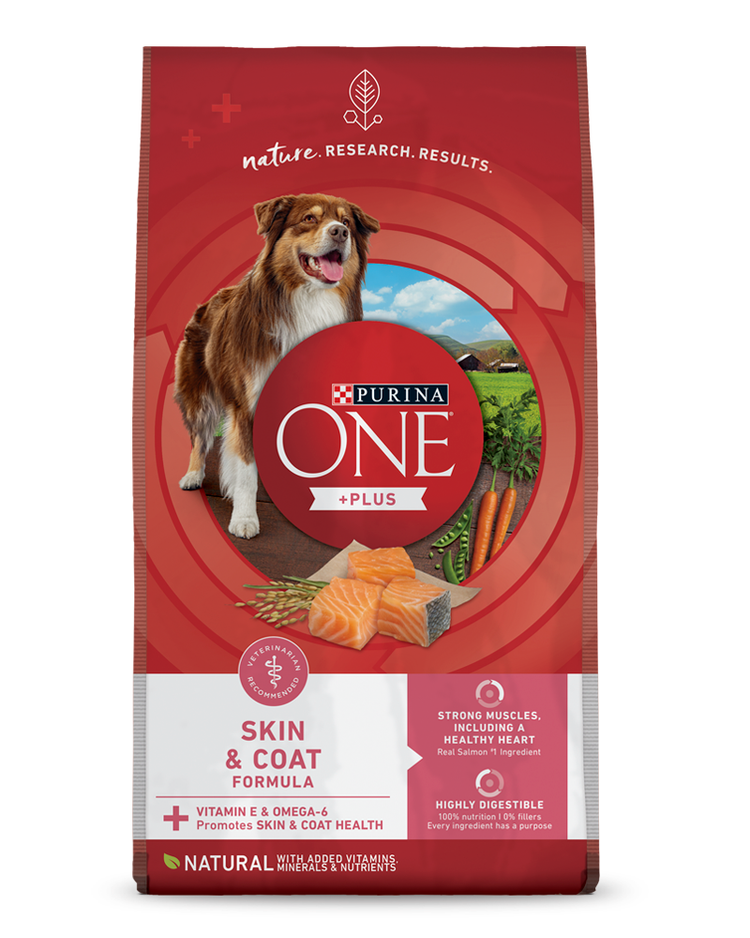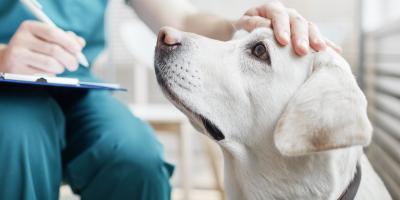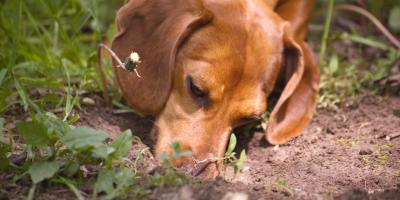Dog Dandruff: Causes & Tips to Treat It


As a pet owner, dog dandruff may not be high on your list of concerns. Maybe you weren’t even aware that, like humans, canines can develop white, flaky skin.
Fortunately, the causes of dandruff are often benign. That said, don’t ignore it. Dog dandruff is a sign of an irregularity with your pet’s skin and can cause dryness, itching and irritation. If your pet has it, they may be uncomfortable.
What’s the best way to care for a dog with this condition? Read on to learn more about the signs of dandruff, how to treat dry skin on dogs, and when you need to be concerned.
Why Does My Dog Have Dandruff?
Dog dandruff is a fairly common skin condition related to the sebaceous glands, which produce skin oils. They cause a couple of different kinds of dandruff.
Seborrhea occurs when these glands produce too much oil. This results in an imbalance and resembles what most people associate with dandruff – small, white flakes of skin.
If the sebaceous glands produce too little oil, it triggers another type of reaction. Your dog’s skin becomes oily and may have an odor.
If you’re wondering what causes dry skin on dogs because your pet has dandruff, here are some common reasons:
Poor Diet
Nutrition plays a crucial role in your dog’s overall health. The food they eat affects a variety of functions including energy levels, immune system strength, and yes – skin health.
When it comes to maintaining their coat, vitamins (especially vitamin A), water and fatty acids are important. If these components are missing or lacking in your pet’s diet, dandruff may occur.
Pro tip: feeding your pet complete and balanced dog food promotes healthy skin.
Excessive or Lack of Grooming
Grooming your dog is essential, as it helps maintain overall health and can improve their quality of life. It’s important to find the right cadence for grooming, however.
Groom too often and your pet’s skin can dry out. On the other hand, if you rarely brush and bathe them, their coat may become oily.
Every dog has unique needs, but grooming occasionally can be an effective way to avoid dandruff.
Dry Air
Without enough moisture in the air, your dog’s skin can become dry. Watch out for this if you live in a dry climate. You may also see increased dandruff during winter months, which tend to be drier than the rest of the year.
Genetics
Typically, dogs’ bodies renew their skin cells at regular intervals. For some breeds, however, the process of cell turnover doesn’t work as it should. Renewal happens much faster for these canines, resulting in dandruff.
Allergies
Environmental or seasonal dog allergies may also contribute to dandruff. If you think this might be the case, contact your veterinarian. They can help diagnose the cause of your dog’s dry skin condition and prescribe treatment.
Health Conditions
In some cases, dog dandruff may be a symptom of an underlying illness. Hypothyroidism, autoimmune conditions and diabetes mellitus can cause it. Cushing’s disease is also known to be a factor. Talk to your veterinarian if you’re concerned.
Infections
If your dog’s skin is dry and flaky, it may be related to a bacterial or fungal infection. Flaking or oily skin combined with other unusual symptoms are clues that your pet needs medical attention.
What Are the Signs of Dandruff on Your Dog?
If you’re looking for signs of dry skin on dogs because you suspect your pet has dandruff, here are some common symptoms:
- White flakes on your dog’s fur
- Itchy skin
- Licking, biting or scratching
- Irritated, red patches of skin
- Alopecia, aka hair loss
- Oily skin
- An unpleasant odor
- Scabs
Remember, not all dandruff looks the same. The symptoms will vary depending on whether your dog has dry seborrhea or oily seborrhea.
Fortunately, all signs of dandruff are usually easy to identify. If you see one, check your canine companion for other unusual symptoms as well.
Dog Dandruff vs. Walking Dandruff
It’s important to know the difference between dandruff and walking dandruff in dogs.
Also known as cheyletiellosis, walking dandruff is a skin parasite that’s sometimes confused for dandruff because it’s small, white and appears on your pet’s fur.
Look closer, though, and you’ll see that this mite can move, or “walk.”
Similar to the skin mite that causes mange in dogs, this parasite can trigger excessive itching and hair loss, and is highly contagious.
Talk to your veterinarian if you think your pet has walking dandruff.
Are Some Dogs More Prone to Dandruff Than Others?
Any dog can develop dandruff, but there are certain breeds that are genetically predisposed to the condition. Often, these canines have medium to long hair and include:
- Golden Retrievers
- Cocker Spaniels
- Yorkshire Terriers
- Labrador Retrievers
- Jack Russell Terriers
- Basset Hounds
How to Prevent & Treat Dry Skin on Dogs
Dry skin is often associated with dandruff. If you’re looking for a dog dry skin remedy, there are a few steps you can take to address it.
- Adjust your grooming schedule, if necessary. Under- and over-grooming can lead to dandruff, so consider changing how often you bathe and brush your pet.
- Consider a sensitive skin dog food. For canines with persistent dermatological problems, sensitive skin dog food may help. Often, this type of food contains healthy levels of omega fatty acids and vitamins A and E. Food formulated for skin and coat health is also an option. Ask your veterinarian if these foods are right for your pet.
- Explore supplements. Skin and coat supplements can provide additional nutrients to your pet’s diet, and are designed to soothe itchy, dry and flaky skin.
- Use a humidifier. Humidifiers provide moisture to your home, which can reduce dryness.
- Watch for environmental changes. Stress can trigger a reaction in dogs that causes dandruff, so keep their environment comfortable and clean. This can include regulating the temperature in the home. For more serious cases of stress, you can consult a behaviorist or trainer for help.
How to Get Rid of Dog Dandruff
Preventative steps can stop dandruff before it starts. If, however, your pet currently has flaky or oily skin, anti-dandruff shampoos are available that may help alleviate their symptoms.
Remember to read the instructions on the bottle, as they may differ slightly from other cleansers you’ve used in the past (e.g., you need to leave the shampoo on your pet for several minutes before rinsing).
Also, don’t use shampoos designed for reducing human dandruff. These will likely exacerbate your pet’s dry, irritated skin.
For walking dandruff, seek treatment from your veterinarian.
Dog dandruff is a relatively common and manageable condition that sometimes resolves on its own. If your dog’s dry skin becomes an ongoing problem, though, take steps to provide them comfort.
If changes to your grooming schedule and adding a humidifier to your home don’t solve the issue, contact your veterinarian about other ways to care for your canine companion.
Want more tips? Check out our dog health articles for advice from Pet Experts.
Related articles

Reward Yourself with myPurina
Earn and redeem rewards for Purina products with the myPurina app.

